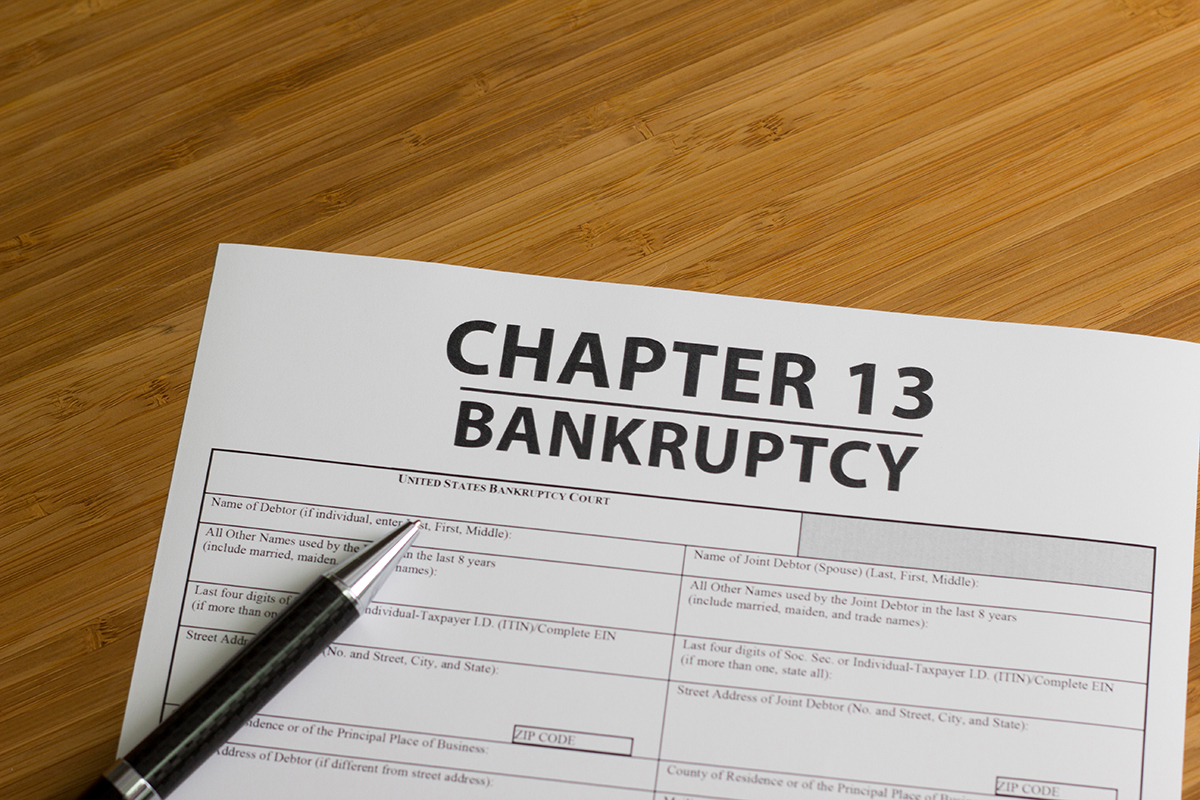Before diving into the bankruptcy process, discover what disqualifies you from filing for bankruptcy in Detroit. Let’s take a closer look at the factors that may prevent you from filing for bankruptcy in Detroit.
Filed Bankruptcy Previously
In Detroit, the waiting period before filing bankruptcy again can vary based on the type of bankruptcy previously filed and the type of bankruptcy you intend to file. If you previously filed for Chapter 7 bankruptcy, you must wait eight years from the date of your prior filing, before filing for Chapter 7 bankruptcy again. If Chapter 13 bankruptcy was already filed, six years must pass from the date of your prior filing to re-file for Chapter 13 bankruptcy.
The waiting period helps ensure that those seeking bankruptcy have made a genuine effort to resolve their financial problems before considering this option once again.

Median Income is Too High
Bankruptcy laws typically require a means test to be completed, which is implemented to determine eligibility for filing for bankruptcy. The means test analyzes the income and expenses to assess the ability to pay off debts. If the median income surpasses a particular threshold, it can disqualify you from filing for bankruptcy. [1]
In Detroit, the specific threshold to qualify for Chapter 7 bankruptcy, which allows for the discharge of most debts, is based on the median income of the state. If an individual’s median income exceeds the defined limit, a person may still be eligible to file for bankruptcy, but they will be required to pursue a Chapter 13 bankruptcy instead.
Not Completing All Requirements
In Detroit, as in many other places, there are certain requirements that must be fulfilled to initiate bankruptcy proceedings. These requirements are put in place to ensure the legitimacy of the bankruptcy claim and prevent abuse of the system. Failure to meet these requirements can result in disqualification from filing bankruptcy.
One significant circumstance that can disqualify an individual from filing bankruptcy is not completing all that is required for the process. Filing for bankruptcy involves a complex and meticulous process, and you need to abide by all the necessary steps.
Falsified or Concealed Information
In Detroit, as is the case across the United States, applicants must adhere to strict guidelines and provide accurate and complete information during the bankruptcy process. Falsifying or concealing information not only undermines the integrity of the bankruptcy system but also has severe consequences for those caught engaging in such activities.
Falsifying information refers to providing intentionally inaccurate or fabricated details on bankruptcy forms and schedules. This could include manipulating income figures, undervaluing assets, or omitting certain debts owed to creditors. Concealing information involves purposefully hiding assets, transferring property to others to avoid its inclusion in the bankruptcy estate, or withholding financial records that should be disclosed.
Engaging in deceptive practices can have severe consequences, ranging from the dismissal of the bankruptcy case to criminal charges. When an individual falsifies or conceals information during bankruptcy proceedings, they not only risk losing the opportunity for debt relief but may also face penalties such as fines and imprisonment.

If The Debts Do Not Qualify
There are several reasons why certain debts may not qualify you for bankruptcy. Understanding which debts do not qualify for bankruptcy to help determine your eligibility and plan your financial recovery effectively.
-
Non-dischargeable Debts:
Examples of non-dischargeable debts include most tax debts, child and spousal support obligations, student loans (in most cases), and debts resulting from fraudulent activities. -
Recent Debts:
If you have obtained new debts shortly before filing for bankruptcy, these may not qualify for discharge. This is known as the "presumption of abuse" provision, designed to prevent individuals from taking on excessive debts with the intention of immediately discharging them through bankruptcy. -
Debts Resulting from Fraudulent or Illegal Activities:
Debts incurred through fraudulent activities or illegal behavior cannot be discharged in bankruptcy. This includes debts resulting from embezzlement, theft, fraud, or intentional harm caused to another person or entity. -
Certain Tax Debts:
While most tax debts do not qualify for discharge, there are some exceptions. Income tax debts more than three years old and meet specific criteria may be eligible for discharge. Consult with a bankruptcy attorney or tax professional to assess whether your tax debts can be eliminated through bankruptcy. -
Debts That Were Not Included in the Bankruptcy Petition:
To qualify for discharge, you must include all your debts in your bankruptcy petition. If you inadvertently omit certain debts from your filing, they may not be eligible for discharge. Be thorough and transparent when disclosing your debts to ensure their inclusion in the bankruptcy process.
Contact Frego & Associates bankruptcy lawyers today to schedule a consultation and take the first step towards a brighter financial future.
Source:
[1] Means Testing. (2022c, March 11). https://www.justice.gov/ust/means-testing/20210515




